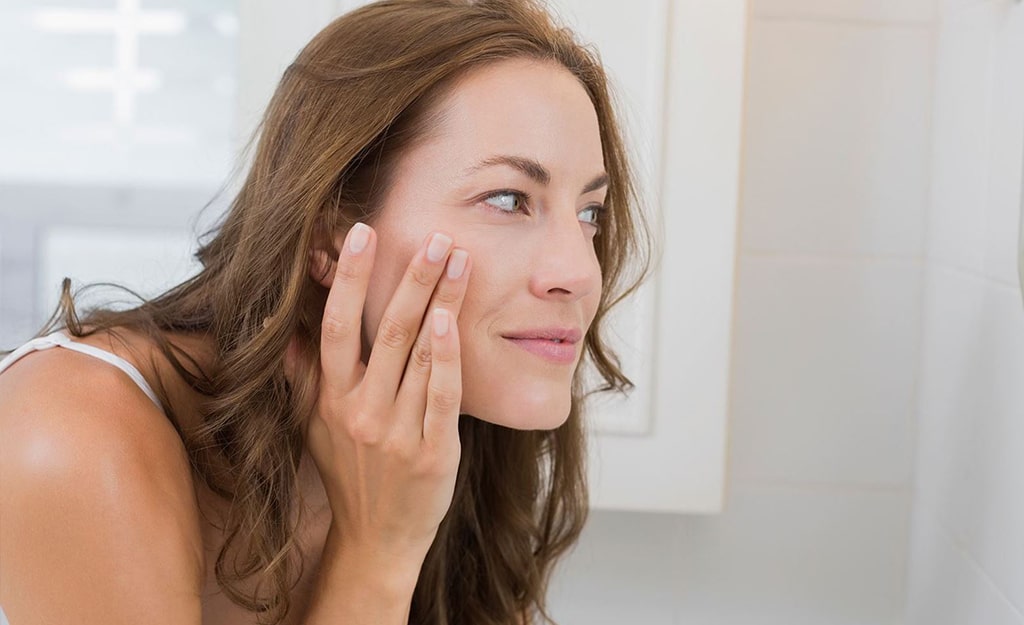Can Stress Affect Skin? Unveiling the Surprising Connection
In the fast-paced world of beauty and skincare, understanding the underlying causes of skin issues is crucial. One of the most intriguing questions that beauticians often encounter is, 'Can stress affect skin?' The answer, as you might suspect, is a resounding yes. Stress is not just a mental or emotional challenge; it has real, tangible effects on our physical bodies, including our skin.
When stress levels rise, our bodies react by producing hormones such as cortisol. These hormones can trigger a chain reaction that negatively impacts various bodily functions, including skin health. Consequently, stress manifests in a multitude of skin-related issues, from acne flare-ups to more severe conditions like eczema or psoriasis. For beauticians, understanding the link between stress and skin is vital for providing comprehensive care to clients.

The Science Behind Stress and Skin
Delving deeper into the connection between stress and skin, it's essential to grasp how stress influences the body. Stress causes the adrenal glands to secrete cortisol, a hormone that, in high amounts, can lead to increased oil production in the skin. This, in turn, can clog pores and cause acne. Moreover, stress can slow down the skin's natural healing process, making it more difficult for blemishes and wounds to recover.
Additionally, stress impacts the skin's barrier function. The skin barrier is responsible for keeping moisture in and harmful irritants out. When this barrier is compromised due to stress, the skin can become dry, irritated, and more susceptible to infections. For those providing skincare services, it's important to recognize when a client's skin may be exhibiting signs of stress and to adjust treatments accordingly.
Recognizing Stress-Induced Skin Conditions
As a beautician, being able to identify stress-related skin conditions can significantly enhance the care you provide. Some common issues linked to stress include:
Acne Breakouts
Stress-induced acne is a common complaint. The excess oil production triggered by cortisol can lead to clogged pores, resulting in breakouts. This is particularly prevalent in adults who may not typically experience acne.
Eczema Flare-Ups
Eczema, characterized by red, itchy, and inflamed patches of skin, can worsen with stress. The inflammatory response caused by stress can exacerbate eczema symptoms, leading to more frequent and severe flare-ups.
Psoriasis
Psoriasis is another condition that can be aggravated by stress. The immune system response to stress can cause an increase in the rapid growth of skin cells, leading to the characteristic scaly patches of psoriasis.
Practical Tips for Managing Stress and Skin Health
Understanding the link between stress and skin is just the beginning. As a beautician, guiding clients in managing their stress can be just as important as the treatments you provide. Here are some actionable tips:
Promote Relaxation Techniques
Encourage clients to incorporate relaxation techniques into their daily routine. Practices such as meditation, yoga, and deep breathing can significantly reduce stress levels and, in turn, improve skin health.
For instance, our winter skincare tips emphasize the importance of a holistic approach that includes stress management.
Encourage a Healthy Lifestyle
Diet and exercise also play critical roles in managing stress. Encourage clients to maintain a balanced diet rich in antioxidants and to engage in regular physical activity. Both can help reduce stress levels and improve overall skin health.
Recommend Skin-Safe Products
Use and recommend skincare products that support the skin barrier function and soothe inflammation. Look for ingredients like ceramides and hyaluronic acid. For more insights, check out this article on ceramides in skincare.
Creating a Stress-Resilient Skincare Routine
Building a skincare routine that supports stress resilience is crucial. For beauticians, this means advising clients on the right products and techniques to use. Start with a gentle cleanser, followed by a hydrating moisturizer, and don't forget the SPF, as recommended in our SPF guide.
For a comprehensive routine tailored for stress management, explore this guide on building a skincare routine.
Conclusion
Understanding 'Can stress affect skin?' is essential for beauticians aiming to provide holistic skincare solutions. By recognizing the signs of stress-related skin issues and offering targeted advice, beauticians can help clients achieve healthier, more resilient skin. Incorporating stress management techniques into skincare routines can make a significant difference in skin health and client satisfaction.
For more expert advice, visit our article on skincare for cold weather.

FAQs
1. How quickly can stress affect my skin?
Stress can affect your skin almost immediately. Hormonal changes and increased oil production can lead to breakouts in a matter of days.
2. Can stress cause long-term skin damage?
Yes, chronic stress can lead to prolonged inflammation and skin barrier disruption, resulting in long-term damage and premature aging.
3. Are there specific skincare products for stressed skin?
Yes, look for products that are hydrating and soothing, containing ingredients like aloe vera, chamomile, and niacinamide to calm and repair stressed skin.
This article contains affiliate links. We may earn a commission at no extra cost to you.

